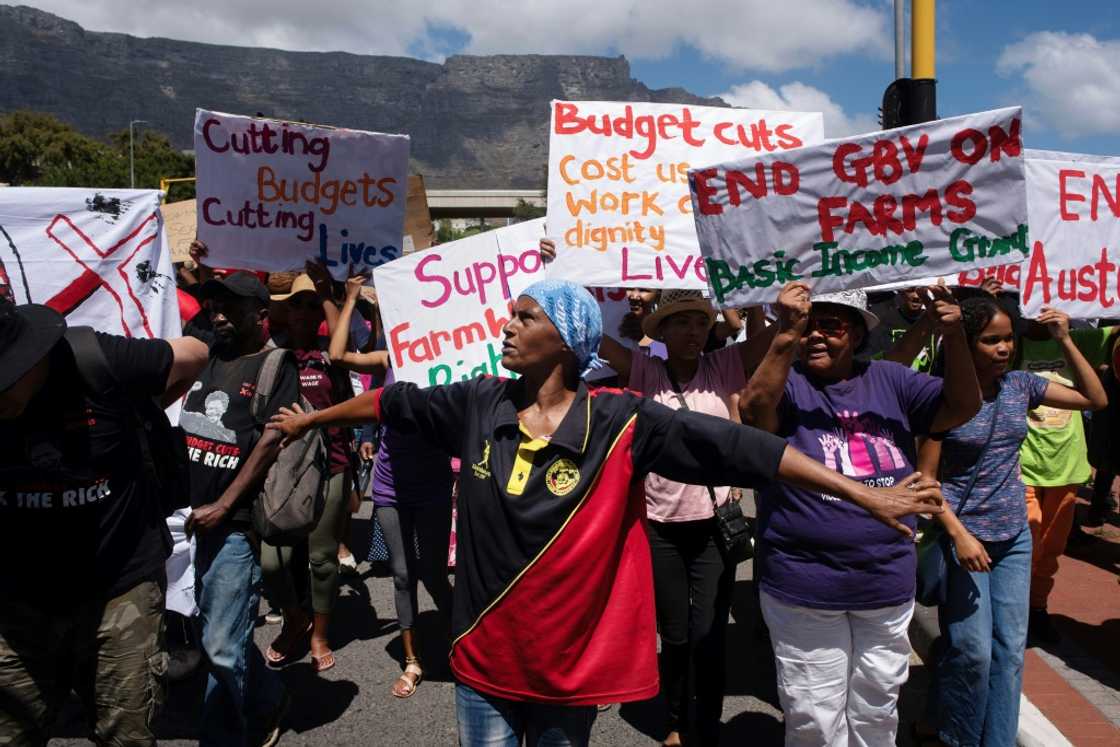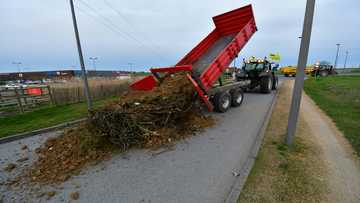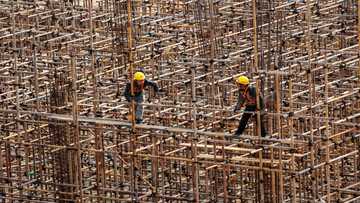South Africa hikes taxes and social spending before vote

Source: AFP
South Africa plans to hike taxes and increase spending on social grants ahead of a general election in May amid sluggish growth and high debt, the government said on Wednesday.
The treasury announced increases in income tax as well as alcohol and cigarettes duties as part of a national budget unveiled a day after President Cyril Ramaphosa announced general elections on May 29.
"South Africa's economic performance has been weak, and difficult decisions are needed to make sure the economy grows and creates jobs," Finance Minister Enoch Godongwana said.
The tax increases come with the ruling African National Congress (ANC) struggling in the polls and at risk of losing its parliamentary majority for the first time since the advent of democracy in 1994.
But the budget also provides more money for social welfare payments -- a key component of the ANC's policies and popularity.
This expenditure will increase by 42 billion rand ($2.2 billion) over the next three years to keep pace with inflation and increase access for the eligible population, the treasury said.
PAY ATTENTION: All celebrity news in one place! Follow YEN's Facebook Broadcast channel and read on the go.
Almost 20 million people -– about a third of the population –- will receive social grants by March 2027, it said.
The government was sensitive to the increase in the cost of living for the millions of South Africans who rely on these grants to make ends meet, Godongwana told parliament.
Excluding interest payments, about 60 percent of the budget went to fund social services, including public employees' salaries, he said.
Three decades after the end of apartheid, South Africa suffers from high levels of poverty and unemployment, which currently stands at more than 32 percent.
South Africans will vote for provincial and national legislatures on May 29. National lawmakers in turn elect a president.
Ramaphosa, 71, is seeking a second term at the helm of what is often described as Africa's most industrialised nation.
Tainted by allegations of graft and mismanagement, the ANC is widely expected to drop below 50 percent for the first time in a national election.
This would require it to seek coalition partners to form a government.
Aleix Montana, an analyst at risk intelligence firm Verisk Maplecroft, said Godongwana's speech "made clear that the ANC is prioritising its political survival over the sustainability of public finances".
"Public sector wage increases will prevent another round of painful negotiations with unions that would overshadow the electoral campaign," he said.
Debt and slow growth
Slow economic growth estimated at 0.6 percent in 2023 and averaging at only 0.8 percent over the past decade has entrenched poverty and unemployment, while ballooning debt is choking public finances.
Problems at public firms running railways, ports and the power system in recent years have resulted in damaging blackouts and transport delays.
Servicing debt is expected to cost the government 382 billion rand this year, more than three times what the crime-ridden nation spends on police.
To reduce borrowing, the treasury said it will draw 150 billion rand over three years from a contingency account managed by the central bank holding gains made from foreign exchange reserves.
The move is projected to help bring down the deficit from 4.9 percent of GDP this fiscal year to 3.3 percent in 2026-27 -- but was criticised by the opposition.
"Liquidating reserves for short-term gain will increase inflationary pressures, undermine the credibility of monetary policy, and signal fiscal irresponsibility to international markets," argued the liberal Democratic Alliance party.
Debt is expected to peak at 75.3 percent of GDP in two years, Godongwana said.
"Government is making the most out of very limited resources," he said, announcing tax hikes for 15 billion rand.
Personal income tax will be increased by not adjusting the tax brackets for inflation, pushing relatively wealthier earners into higher payments.
Duties on alcohol and tobacco products are instead to rise by up to 7.2 percent and 8.2 percent respectively.
In Cape Town, hundreds of people protested against expected budget cuts ahead of Godongwana's speech.
"Tax Ramaphosa, not us!" read a sign held by one demonstrator.
Yaziwe Kwebulana, 31, an unemployed mother, said she had to live on only 510 rand a month, also complaining that the public health system was in tatters.
"There are no medications and we can't afford to go... private," she told AFP.
New feature: Сheck out news that is picked for YOU ➡️ click on “Recommended for you” and enjoy!
Source: AFP




